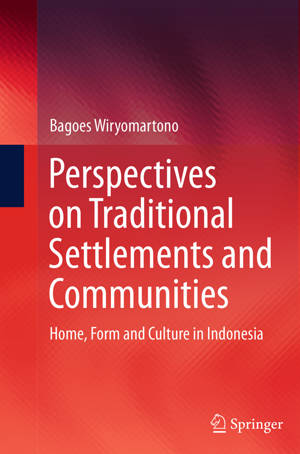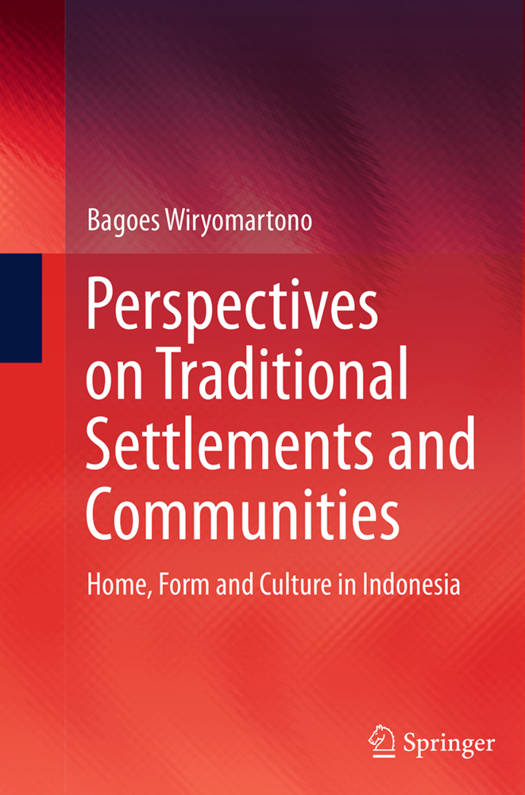
- Afhalen na 1 uur in een winkel met voorraad
- Gratis thuislevering in België vanaf € 30
- Ruim aanbod met 7 miljoen producten
- Afhalen na 1 uur in een winkel met voorraad
- Gratis thuislevering in België vanaf € 30
- Ruim aanbod met 7 miljoen producten
Perspectives on Traditional Settlements and Communities
Home, Form and Culture in Indonesia
Bagoes WiryomartonoOmschrijving
This book covers the relationship between societies and their culture in the context of traditional settlement in Indonesia. The focus of the study is on the search for meanings of local concepts. This study reveals and analyzes the concepts concerning home and their sociocultural strategies for maintaining a sense of community and identity. In this study, identifying local concepts becomes the hallmark and the hub of analyses that explore, verify and establish relations between ideas and phenomena. Based on these relations, this study attempts to capture the reality of the local world that upholds and sustains the communities' values, norms and principles for what they may call a homeland. The book is organized into two parts. Part I describes a cross-regional habitation in Indonesia, while Part II presents four ethnic regions of Indonesia - Sa'dan Toraja, Bali, Naga and Minangkabau. Their unique traditions, customs, beliefs and attitudes serve to provide diversity in terms of their backgrounds and lifestyles, though they share the challenge of sustaining their sense of home in the face of modernity as characterized by changes and developments toward a technologically industrialized society. The central research questions are - What is development in terms of culture and environmental sustainability? How do these communities respond to modernity?
Specificaties
Betrokkenen
- Auteur(s):
- Uitgeverij:
Inhoud
- Aantal bladzijden:
- 192
- Taal:
- Engels
Eigenschappen
- Productcode (EAN):
- 9789811012167
- Verschijningsdatum:
- 3/09/2016
- Uitvoering:
- Paperback
- Formaat:
- Trade paperback (VS)
- Afmetingen:
- 156 mm x 234 mm
- Gewicht:
- 299 g

Alleen bij Standaard Boekhandel
Beoordelingen
We publiceren alleen reviews die voldoen aan de voorwaarden voor reviews. Bekijk onze voorwaarden voor reviews.











